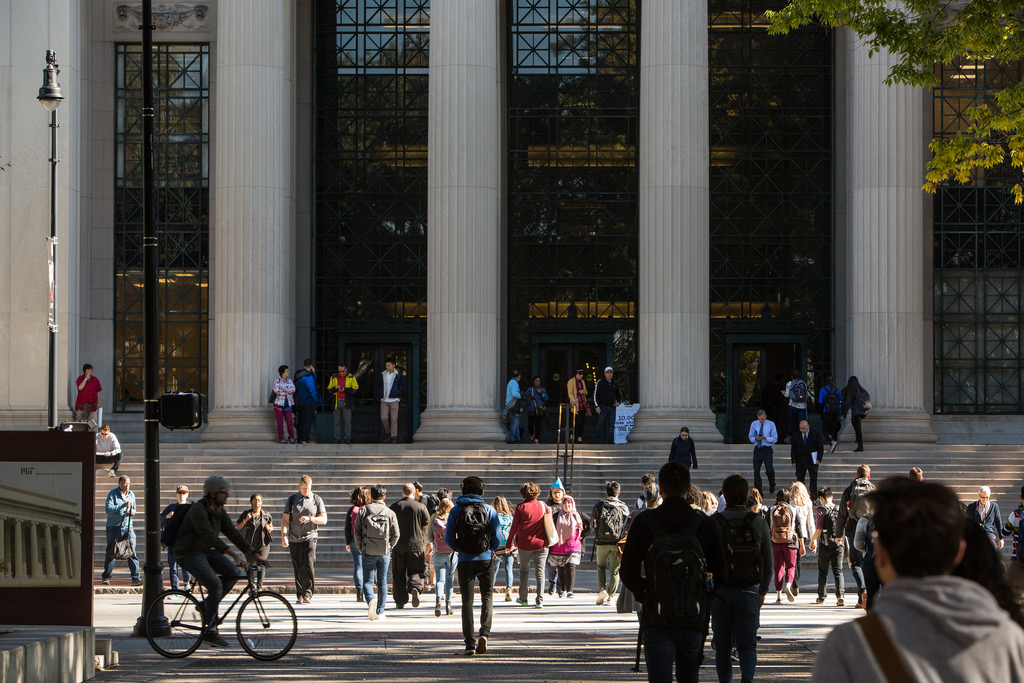Coordinated Support to Address Food Insecurity and Other Critical Student Needs
-
-
Slice of MIT
Filed Under
Recommended

When TechMart first opened in Walker Memorial this past fall, it became MIT’s first at-cost, affordable grocery store for students. It’s also an example of the behind-the-scenes work of MIT’s Division of Student Life, Dining, and Student Support and Wellbeing.
Formed in 2016, Student Support and Wellbeing unified existing offices across campus to offer coordinated care to MIT students in need—including those who are food insecure. When the idea for TechMart came out of the Food Insecurity Solutions Working Group (FISWG), MIT’s Division of Student Life helped to make it a reality through funding and guidance.
“We offer a central place for students to reach out for resources,” explains Senior Associate Dean of Student Support and Wellbeing David Randall, who chaired the FISWG.
While Student Support and Wellbeing facilitates preventive programming—like teaching students how to grocery shop affordably or cook healthy meals—a large focus of the office is responding to students in crisis or exceptional need. In addressing food insecurity, Randall explains that students are often part of the process in identifying need and suggesting support ideas. “They’re the best reporters of their own experiences, and they often have creative solutions for these issues,” Randall says. TechMart—which was launched with guidance from students—has an all-student advisory board. SwipeShare, a program that allows students on a meal plan to donate unused “guest swipes” to classmates in need, was also developed in collaboration with students and is now facilitated by Dining and Student Support and Wellbeing.
“In a strong partnership, the DSL team worked with student leaders in Class Awareness, Support, and Equality (CASE), the Undergraduate Association, and the Graduate Student Council to develop a multifaceted approach to making our campus more food secure,” explains Vice President and Dean for Student Life Suzy Nelson.
In situations of financial instability, Randall’s office also provides funds to help with needs ranging from minor crises—like paying for laptop repair—to emergency issues, such as covering the cost of a plane ticket to visit a dying relative. Randall notes that gifts to his office directly support such funds: “Every donation that someone makes goes directly to a student—whether it’s a flight home or new winter boots, it makes a huge impact in their lives.”
Dozens of programs across campus are funded and supported by Student Support and Wellbeing, which also comprises teams to assist students with personal issues, crises, disabilities, substance and alcohol abuse, and interpersonal violence. Randall explains that the true strength of the office comes from its collaborative approach to caring for students. “We used to have resources scattered across the Institute,” he explains. “Coordinated care across groups has allowed us to help students much more effectively.”
Coming this Pi Day, March 14: Student Support and Wellbeing is one of more than 50 MIT groups that will participate in microchallenges to unlock bonus gifts during the third annual MIT 24-Hour Challenge. Join us, and collaborate with MIT alumni, students, parents, and friends to fuel the future at MIT. If 6,283 MIT alumni, students, parents, and friends give to MIT on March 14, 2019, an anonymous challenger will give the Institute $314,159, fueling the future at MIT and around the world.







